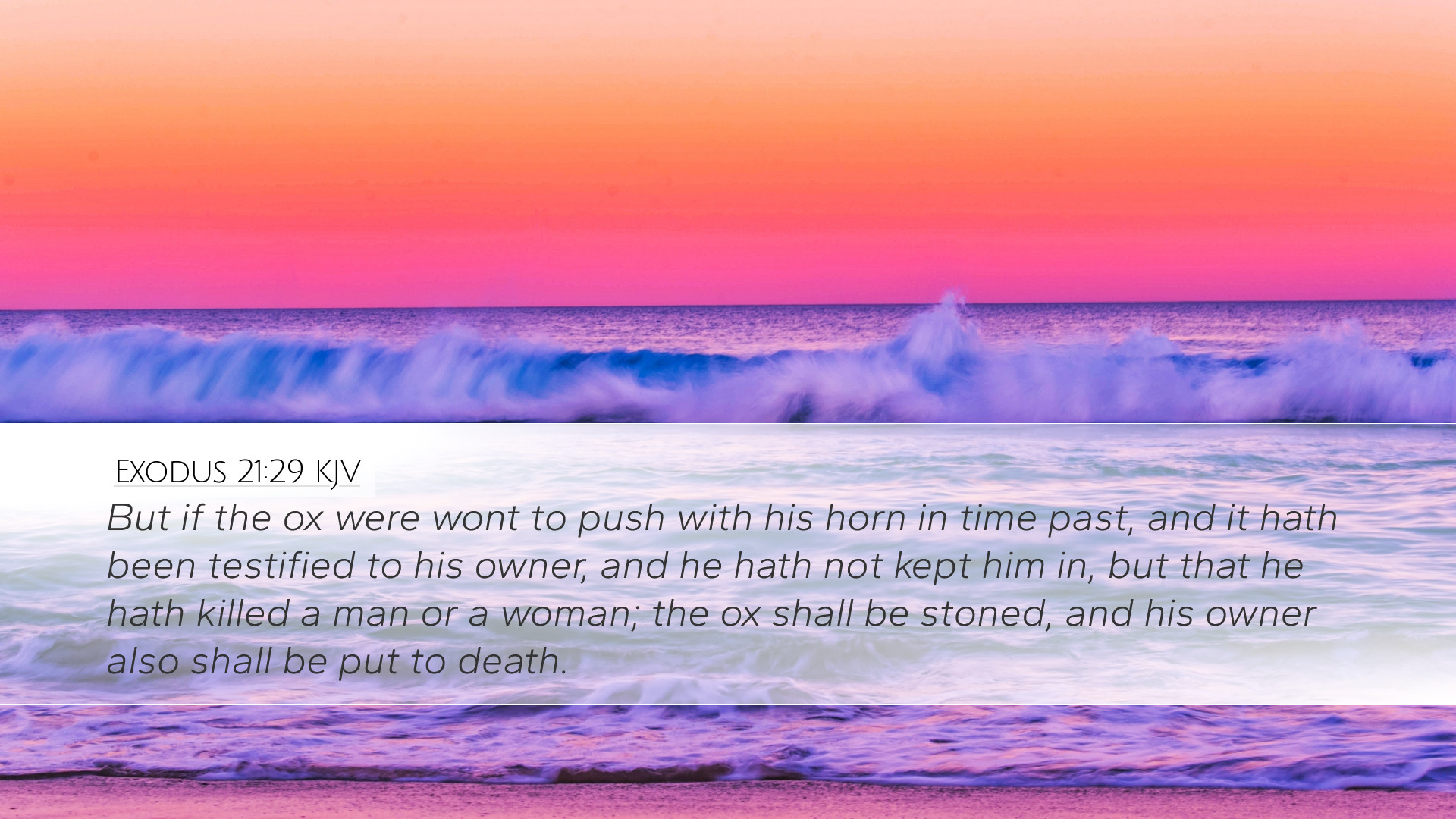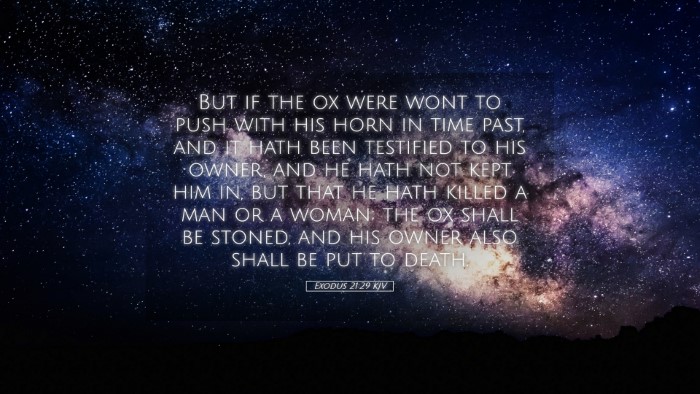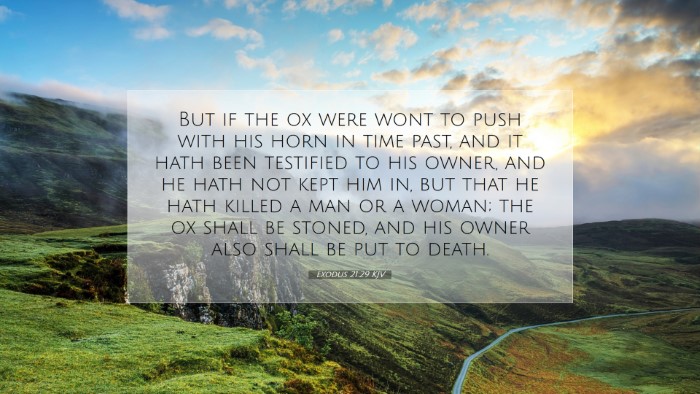Exodus 21:29 - Bible Commentary
Verse: "But if the ox were wont to push with his horn in time past, and it hath been testified to his owner, and he hath not kept him in, but that he hath killed a man or a woman; the ox shall be stoned, and his owner also shall be put to death."
Overview
This verse is part of the legal instructions given in the Mosaic Law concerning the responsibilities of an ox owner. It provides insight into the principles of accountability and the concept of due diligence in managing one's property, particularly livestock. The underlying theme emphasizes the moral responsibility of individuals regarding their actions and those of their possessions.
Commentary Insights
Matthew Henry's Commentary
Matthew Henry articulates the critical notion that the owner of the ox bears responsibility for the beast's actions. If the ox had a history of aggression and the owner was aware but failed to control it, he is culpable when the animal causes harm. Henry describes the verse's implications regarding justice and understanding that personal negligence leads to personal consequence.
Key Points from Henry:
- Responsibility: The owner’s knowledge of the ox’s past behavior obligates him to take preventive action.
- Moral Accountability: The law demonstrates the principle that individuals are liable for their property.
- Justice of God: God’s justice is underscored as it requires accountability not just from those who act but also from those who fail to restrain.
Albert Barnes' Notes
Albert Barnes elaborates on the legal ramifications of the verse and mentions that the penalties prescribed serve both as a deterrent and a means of maintaining social order. The severity of the punishment reflects the seriousness with which God views safety in society and the protection of human life.
Key Insights from Barnes:
- Legal Framework: The punishment of stoning the ox and execution of the owner illustrates a legal system designed to safeguard the community.
- Preventative Measures: Owners must take precautionary steps to ensure no harm comes from their animals.
- Societal Impact: The consequences serve as a reminder that negligence leads to severe repercussions for both individuals and the larger community.
Adam Clarke's Commentary
Adam Clarke emphasizes the legal nuances of the text, highlighting that the law provided not just punishment but also a form of restitution. Clarke points out that this law serves as an analogy for spiritual truths: those who are aware of sin in their lives and do nothing are similarly guilty.
Clarke’s Observations:
- Historical Context: The prevalence of cattle in ancient society made such laws necessary for community protection.
- Spiritual Application: The principles of vigilance and accountability extend into spiritual life—knowing the dangers and failing to act carries severe consequences.
- Symbolic Representation: Clarke relates the ox to humanity, suggesting that those who have the liberty to choose must be conscious of their actions.
Theological Implications
Exodus 21:29 serves as a reflection of God’s concern for justice and order in society. The varied commentaries reveal how this law has profound implications for understanding moral and ethical responsibility, accountability for one's property, and the consequences of negligence.
Ethical Responsibility
This passage teaches that awareness of risk or danger—be it through ill-managed beasts or personal sin—invites a moral obligation to act. The theological implication is clear: failure to exercise due diligence leads not only to personal loss but turns one into a catalyst for greater societal harm.
Reflection for Today’s Believers
For pastors, students, and theologians today, this passage can serve as a powerful reminder of the need for active engagement in one's community and personal life. Just as the owner of the ox was charged to protect society from harm, believers are called to be vigilant in their spiritual and moral walk, fearful of the repercussions of neglect.
As we reflect on these insights, may we remember that responsibility extends beyond ourselves into the lives we touch, urging us to cultivate a diligent and conscientious approach in all our dealings.


